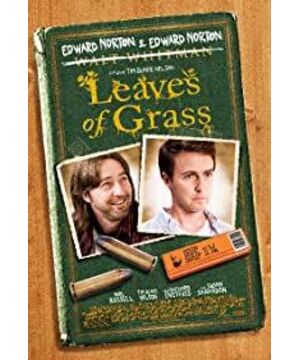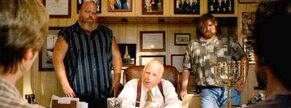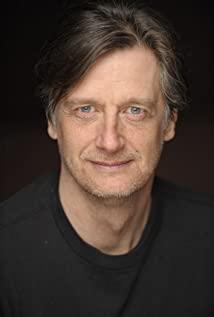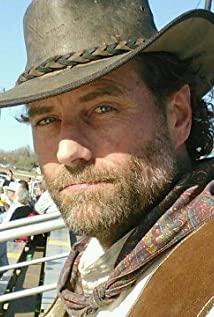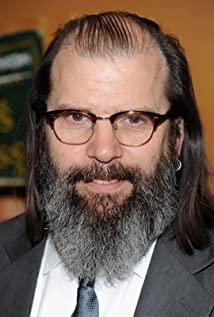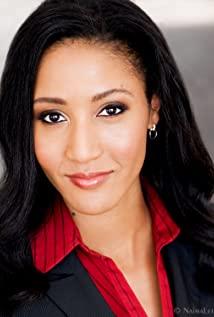Interview with Edward
NortonBy Sean O'Neal March 31, 2010
Through a series of impressive films such as Primal Fear, Fight Club, American History X, The 25th Hour Edward Norton has become a representative figure of his generation of film actors, and for nearly a decade, he has been more or less unexpected. His quiet, thoughtful performances in low-budget films like Down in the Valley, The Painted Veid and Red Dragon, The Incredible Hulk] and roles in big-budget films such as the 2008 police film Pride And Glory, Norton has also long said goodbye to the silver screen entirely. Norton's first role in nearly two years was a typically odd choice: in "Leaves Of Grass" (written and directed by "The Incredible Hulk" co-star Tim Blake Nelson) , starring his twin brothers Bill and Brady -- a no-nonsense, cautious professor of classical philosophy, the other a marijuana-growing criminal -- takes place in the Oklahoma wilderness with drug addicts A tangled comedy story. Soon, Norton will star opposite Robert De Niro in the film "Stone," in which Norton will play a pigtailed arsonist who takes advantage of his girlfriend (Mira Jovovich) blackmailing De Niro's parole officer to get himself out of prison. Now he's writing the screenplay for the decade-long adaptation of Jonathan Letham's novel "Orphans in Brooklyn," in which he will direct and star a detective with Tourette's ADHD. Ahead of the film's premiere of Blades of Grass, The AVClub had a brief chat with Norton to discuss the deeper meaning of the film he's starred in, the divisive nature of his many characters and why he's reluctant to talk about himself. (Update: We just learned from the publicists that the film Blades of Grass has found new investors and will be released after this summer, the exact date is to be determined)
The AVClub (AVC): You said you would rather take a big pay cut for your role in Blades of Grass. Why are you so interested in this movie?
Edward Norton (EN): [Laughs] I just think the movie is very original and we all decided to pull together for Tim - to really focus on the movie and make it a success. Once you put all that in, you seem to have to finish the movie. Funds do get a little tight these days. Exactly.
AVC: You have a lot of creative elements in other films, including rewriting lines. Is it the same in the movie Blades of Grass?
en:No. Tim is the master of this script. It's a reflection of his personality, and he also has such a good team to juxtapose the worlds of classical philosophers and marijuana growers in southern Oklahoma. It's very real to Tim. I really like when someone is in control of something. This is a pleasant thing.
AVC: How did Tim make the philosophical content of the film explicit? For example, your character in this film involves Nietzsche's The Birth of Tragedy, about the conflict between the sun god and the god of wine. The subtext in the movie is that Billy's character is the Dionysian side, and Brady's character is the Sun God's side. Is this really the case in this movie?
en:Well, Tim has made these things very clear, and if we don't get it, we're just plain dumb. Tim believes that many types of stories are typical, even two similar stories. Some stories, by resetting the background, you can re-enact them. When filming "Beasts and Good People," we sometimes talked about Othello and Macbeth—the stories of old-school tragedies about someone falling through their own fault and a lesson. My friend David [McKenna] wrote, "Why don't we play it out through a contemporary Orange County story?" I like the idea of taking some of the already dramatic idea into a contemporary story or something something manifests. I think Tim did it. He puts a lot of Platonic thinking into these ideas of balance and divergence that you speak of. I think he did a great job. He embedded the world he knew into those classical ideas, and I admire him a lot.
It would be an extraordinary experience if you had the idea and someone could direct for it, and only for them. I remember reading the script for Fight Club and thinking, "Nobody can do it better than David [Finch]." It was like it was tailor-made for him. It's like the perfect combination of someone's talent and this script, you can't find a better director and script than this. I've felt that bond between "Dark Hollow" and David Jacobson, "25 Hours" and Spike Lee. It's like New York after 9/11; I don't think it's accessible to anyone other than someone who has experienced it firsthand. And once you get that feeling, you really want to get involved because you know someone is going to do something really unique. I think Tim is exactly that in this movie. We just want to help him do it together.
AVC: Another person involved in this film, Heidegger, thinks that The Birth of Tragedy embodies a "split consciousness" that is very common in the characters you've played since first degree fear Theme of. Why do you always linger in dual/split personalities, or do they always follow you?
en:I think a lot of people have an unknown side of themselves in their inner world, and this side will manifest itself in some form on certain occasions. This goes back to Joseph Campbell and beyond. Even Deepak Chopra has spoken about the concept of "shadows", arguing that people have a "secret side". I think a lot of people have that side. Fight Club is a movie that penetrates the hearts of many people our age precisely because it tries to address many people's questions about why they are forced to exist in this neutral, modern society that people can't watch Clear your inner problems. This awareness or the idea of how to separate the real self from modern society does not exist only in young people, but in ordinary people. I think the reason it exists for a lot of people is that people do experience this split feeling inside, that feeling of not being released. I feel it. I think a lot of my generation has experienced that. They experience something more complex inside than the world allows them to experience.
I didn't mean to explore these things, but when I see things like this, I think they inspire me, and I think there's something more complicated in it. By the way, they don't always ask me to do this alone. Like in Fight Club, it was me and Brad Pitt who played the split. Sometimes I get involved because I'm interested in a topic, and sometimes it's because I'm challenged as an actor. [In Blades of Grass], obviously, both, "see if you can play two interacting characters," a very interesting challenge. That's exactly what the comedy/tragic mask stands for - that duality, which is the essence of drama. Sometimes I feel less like an agent of those dilemmas than I feel fortunate enough to be able to approach them and examine them. When I go through this, I really enjoy it.
But it's interesting that when people talk about "First Degree Fear" just because of the "deception" in it, can you understand that? It's very interesting, but I do think the complex transformations a character goes through - like The Beasts or the 25th hour - is in a way more difficult to achieve than the "deception" of a dual nature. Sometimes people ask me these things through The Score, and I like to be like, "Yeah, but that's just an improv." It's funny, but it's really a trick - Even in the movie, it's deception. There is no depth to this. You have to believe he's achieved, but that's not a complicated character. Sometimes I get terrified by something very complicated. For example, I'm more afraid of the characters in Veil, like some of the very dark variations in Veil, than some of the more interesting but not as challenging characters in Fear 1, for example. I think it's very difficult to get the scale of performance right.
AVC: This is the first time you've actually played against "yourself". How did you feel about working with Edward Norton?
en:[laughs] He knows his limits. That's fine. It's good when someone knows their bottom line. No, it's an interesting thing, and I think it's a bit more common than people think. Let's say you're writing an article and an editor comes and says you wrote a bunch of shit and it makes you pissed off. In your head, you imagine a lot of conversations you might have, you act out them, you write down the conversations on both sides. Or, you have an argument with someone, you walk away, and you write again, "Oh, I should have said this and he should have said that..." I think a lot of people imagine that at some point every day This kind of dialogue between the two sides. I think this mental conversation trick that happens in our heads does happen.
In some ways, the funniest and most difficult thing is trying to make things more emotional and romantic, not more rigid. You don't just want to keep repeating the same thing over and over. The funny thing for me is trying to replace "the two are connected" with "wait a minute, it's like they're on top of each other" or "they look like they're in the same place, sticking together" statement. Replace stereotyped descriptions of phenomena with the analogy of two people staying in the same place. Once we get into that kind of imagination, I think it will be very interesting. It is true that the same character can have unexpected performances through different interpretations. It's hard to explain, but it's fun.
AVC: So will you work with Norton again?
en:[laughs] Yeah, I'll be working with myself again. While one of them I like to shoot repeatedly, the other I like to shoot a little faster.
AVC: You talked about Joseph Campbell in a brief interview after you filmed Hell Hollow, and you mentioned his point of view on "complete transcendentalism." In that interview, you said, "Sometimes I feel like I'm really good at helping the other self." How did you do that?
en:When you start different jobs, they are sometimes in different places. David Jacobson had a new and wonderful urge to the West while filming "Dark Hollow." He came to me with a script that was completely theoretical, and we spent most of our time together trying to pull him out of the ideas he already had so that the script could connect. And other people -- like in Fight Club or other movies -- say, "I get it, I know what he's talking about." It gets to a point of clarity. In "Leaves of Grass", it is completely different. Tim's script - like bulletproof I don't want to say - is so real. He's got his theory firmly in control, as if an expedition to a duality theory or a character looking for balance is poised to go. I read the script and it felt like "it's like this script is for preparation, and I've fully grasped what Tim is trying to convey, which is to keep trying to balance different sides of myself". I like it very much.
Many people who are good at acting know... how can I best add my own to the performance in the performance? That is you must never do this just for yourself. You can't just do it for your own satisfaction. You should do this to communicate yourself and your character. Isn't that the "communication" theme of Howards End? The two sisters in the film have this "communication" philosophy of life, which I think is true. I thought about it for a long time in the movie. If you dig into some of the movies that have influenced you deeply, these movies can help you go, "Oh my God, they're right." When I first saw "Do The Right Thing" That's how it feels. When you grow up and you're going to go to public school and do something, and you're like, "God, someone's already done this. Someone's told me all about it." I think that's the most exciting thing about these movies. place. When you feel that people are able to relive these movies, relive what you said, and say, "I got it" or, "I understand what you're trying to say in the movie, it makes me understand certain things. deeper,” or “I feel the same way”—that’s right. I think that's what I keep looking for in movies. And now, these things are very limited. It cannot be found in Red Dragon or The Incredible Hulk. [laughs] Sometimes I think it would be enough if I could say, "This is a form of entertainment or just a pastime." But I think it's better to try to find, "How does what other people are talking about and talking about relate to me and my life?"
AVC: An entertainment blockbuster like The Incredible Hulk -- especially Movies that join the ranks of movies like "Avengers" -- with sequels and publicity demands -- seem to take up a lot of your time and creative energy. Did these bother you?
en:Slightly troubled. In fact, I will go through various avenues to participate in lower-budget films, which I think are more necessary. These films don't have so many mechanical affairs. Sometimes films with complex or cross-cutting themes need more motivation. Sometimes I stop getting involved with the big-budget films and focus more on the independent low-budget films. It's not that I don't support big-budget movies, I just don't think he needs that much attention. It's weird to have the experience of finding that these shoots can be less draining and more productive, because if you're not directing these movies or making these movies and you're just doing your own thing , you are out of date. By then you'll probably just have to go to Comic-Con or something. I think a lot of actors would say that those are the simplest performances without any challenges.
AVC: So you're still going to continue movies like The Avengers? Is there anything that makes you let go of the idea of someone else playing a role like the Hulk?
en:This is some important arrangement that I don't... [pause] There are still a lot of big studios that need to be done, but I'm not going to put in a lot of thinking time. I think they'll have a lot of other characters coming out before they do the Avengers kind of movie. For example Nordic Thor, Captain America, etc. I think these will be done at a later date.
AVC: At this point, you're just finishing your performance with Robert De Niro in "The Stones." In the next nine years, you still have so many personal experiences to express. Will you play against De Niro again?
en:This is awesome. When you start admiring the performance of an actor like De Niro, and imagine being able to do the things you admire, it's going to be exciting...it's going to be even more important than being in the movie rock. I'm super excited to play with him, it's a lot of fun, but it's more about the specific genre of the movie...you know it's a gangster movie. It's a delightful thing, but it's a very complicated thing, and there's something more practical between the various roles, so I'm more looking forward to the opportunity to work with Bob someday, Because he really is a very good actor and does a lot of practical things. Watching what he did and working with him fascinated me. We got the job done very quickly. It took almost 35 days. That's the least amount of time I've ever made a movie. This is also the first time I have worked with so many people. Director John Callan, who has directed the Veil, I think he's a very good and very serious film director, and I'm very excited to work with him again and to get back to what we've experienced on other films. If you've worked with someone before, it's very easy to work together again. It was a very enjoyable shooting experience.
AVC: Eventually you also had a more significant development in The Brooklyn Orphan, which is something you and Jonathan Letham made choices about 11 years ago. Can you tell us a little bit about the progress of the film's release?
en:It's hard to say. It's out of my control, and I don't want to explain too much. For me, writing such a script would actually conflict with my current job and what I want to do. I can't sit down and tinker with something while doing other work. So unfortunately I stopped working because I needed more time... Honestly, it was a bit difficult to find a place where no one would bother to focus on it.
AVC: Can you tell me how much you wanted to finish writing this script? As a first-time screenwriter, do you really want to set the story to the 1950s?
en:I think I'll wait until I'm done to discuss it. I don't think there's really any benefit in starting to explain before I'm done. The script is still halfway through, so I can't talk about it like a director. I would say that any discussion of this from a director's perspective is hypothetical. I mean, I now have an idea about this and intend to write it down, but I haven't done it yet... [pauses] It's too early for me... [pauses] As a director As far as I'm concerned, I haven't had any contact with that yet.
AVC: That's it for now. You mentioned several times that you admire Bob Dylan because he often refuses to talk about his own work, especially for journalists like me. Do you still find something annoying about being an actor?
en:Sometimes I think the best thing is not to get rid of everything. I mean, when we go to the movies and listen to the music, why do you take away people's ability to know certain things and not let them draw their own conclusions from the movies? Sometimes I'm afraid of the question, "What's this movie about?" because I think it's up to people to experience what's in the movie for themselves. Dylan is a good role model for me. He does it himself, and I think he defends his approach in some peculiar way. As an actor, sometimes you need to explain to the audience to help them understand. It seems easier to appreciate the work of others. It's easy for me to discuss my appreciation for Tim Nelson as an author or his work, but not so easy to discuss myself.
AVC: But, you've always had to. Going back to what we talked about before, this seems to be the "dual nature" of being an actor.
en:Yes, so to speak. I think you'd say it's what the actor industry needs. But I think there are many ways to practice this idea without breaking it. [laughs] Hope so.
View more about Leaves of Grass reviews


